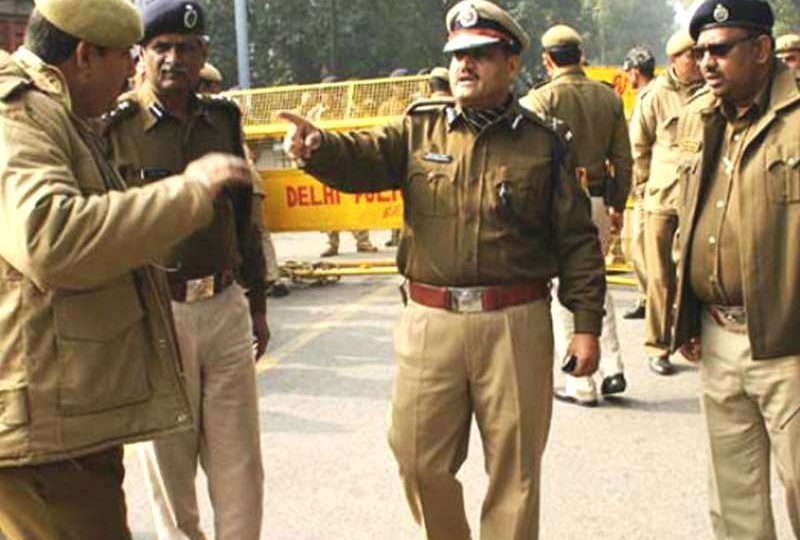On Monday, July 8, the Supreme Court chastised the Centre for forcing a 100% visually impaired candidate who passed the Civil Services Examination (CSE) to “run pillar to post” for his appointment, even though there were several open positions for people with disabilities.
There has been a “gross default” on the part of the Union of India in implementing the Persons with Disabilities (Equal Opportunities, Protection of Rights, and Full Participation) Act, 1995 (PWD Act), according to a bench of Justices Abhay S. Oka and Pankaj Mithal.
“the affidavits filed by the appellant- Union of India bring a sorry state of affairs on record. The appellant failed to implement the provisions of the PWD Act, 1995…Respondent no. 1 has been made to run from pillar to post to get an appointment, though there is a large backlog of vacancies in various PWD categories”, the court observed.
Preferring the Indian Administrative Services (IAS), Indian Revenue Services-Income Tax (IRS (IT)), Indian Railway Personnel Service (IRPS), and Indian Revenue Service-Customs and Excise (IRS (C&E)), Pankaj Srivastava, who is completely blind, took the 2008 Civil Services Examination (CSE).
He was not appointed even after passing the written and interview phases, thus he filed an Original Application with the Central Administrative Tribunal (CAT), New Delhi. His main contention was that the PWD Act’s backlog of open positions had not been filled.
The Department of Personnel and Training (DoPT) and the Union Public Service Commission (UPSC) were instructed by the CAT on October 8, 2010, to compute backlog vacancies and evaluate him for service assignment within six months. Srivastava was notified by the UPSC on September 9, 2011, that he was not selected from the merit list among the candidates for the PH-2 (Visually Impaired) category, which prompted him to submit an additional application.
On May 30, 2012, UPSC was directed by CAT to designate visually challenged applicants in the reserved category and modify individuals chosen on the basis of merit in the unreserved/general category. UPSC notified Srivastava once more on August 30, 2012, that he was not eligible for the PH-2 (VI) quota.
On May 30, 2012, the Union of India contested the CAT’s ruling in the Delhi High Court. On October 11, 2013, the Delhi High Court denied the writ petition. As a result, it submitted the current appeal to the Supreme Court.
Disabled people filed numerous lawsuits after the Supreme Court of India stated on August 31, 2023, that the Union of India had not implemented reservations under the PWD Act, 1995, in civil posts from 1996 to 2009. 41 backlog openings from 1996 to 2009 were disclosed in the Union’s affidavit dated April 29, 2022, five of which were for VI candidates. The Union asserted that Section 33 of the 1995 Act excluded the IRS (C&CE) and IRS (IT) categories from VI reservations; however, no notification to this effect was provided.
The court ordered the Union to reexamine the process of locating backlog positions for VI applicants, pointing out that if IRS (C&CE) and IRS (IT) were taken into account, there may be at least 17 such positions. In light of the ongoing failure to implement reservations, the court further ordered examination of vacancy interchange under Section 36 of the 1995 Act.
In an affidavit dated January 9, 2024, the Union of India stated that it complied with the court’s ruling, but on the basis of the updated calculations, it asserted that Srivastava could not be accommodated.
Following the final suggested candidate, Srivastava was ranked eleventh out of PH-2 (VI) contenders, according to the court. The court reaffirmed the Union’s position that there was no basis for an exemption notification under Section 33 for IRS (IT) and IRS (C&E) vacancies, contending that they were exempt from VI reservations since 2007.
According to the Union’s affidavit dated January 9, 2024, there are 75 open positions in IRS (IT) for individuals with disabilities. According to the court, Section 36 of the PWD Act, 1995 might have been applied in order to take the respondent’s position into consideration.
“Unfortunately, in this case, at all stages, the appellant has taken a stand which defeats the very object of enacting laws for the benefit of persons with disability. If the appellant had implemented the PWD Act, 1995, in its true letter and spirit, respondent no. 1 would not have been forced to run from pillar to post to get justice”, the court said.In accordance with Article 142 of the Constitution, the court gave the following instructions:
- Srivastava and the 10 applicants ranked above him in the CSE-2008 merit list will be given consideration for appointments to fill PWD candidates’ backlog positions in IRS (IT) or other services/branches.
- Appointments have to be made without salary or seniority benefit arrears, and they have to be made within three months.
- Their service will be calculated starting on the date of the last VI candidate’s appointment in CSE-2008 for retirement benefits.
- These instructions are given as a one-time action and won’t be followed again.
Civil Appeal Case No. 3303 of 2015
Title of Case: Union of India Pankaj Kumar Srivastava and Associates.



